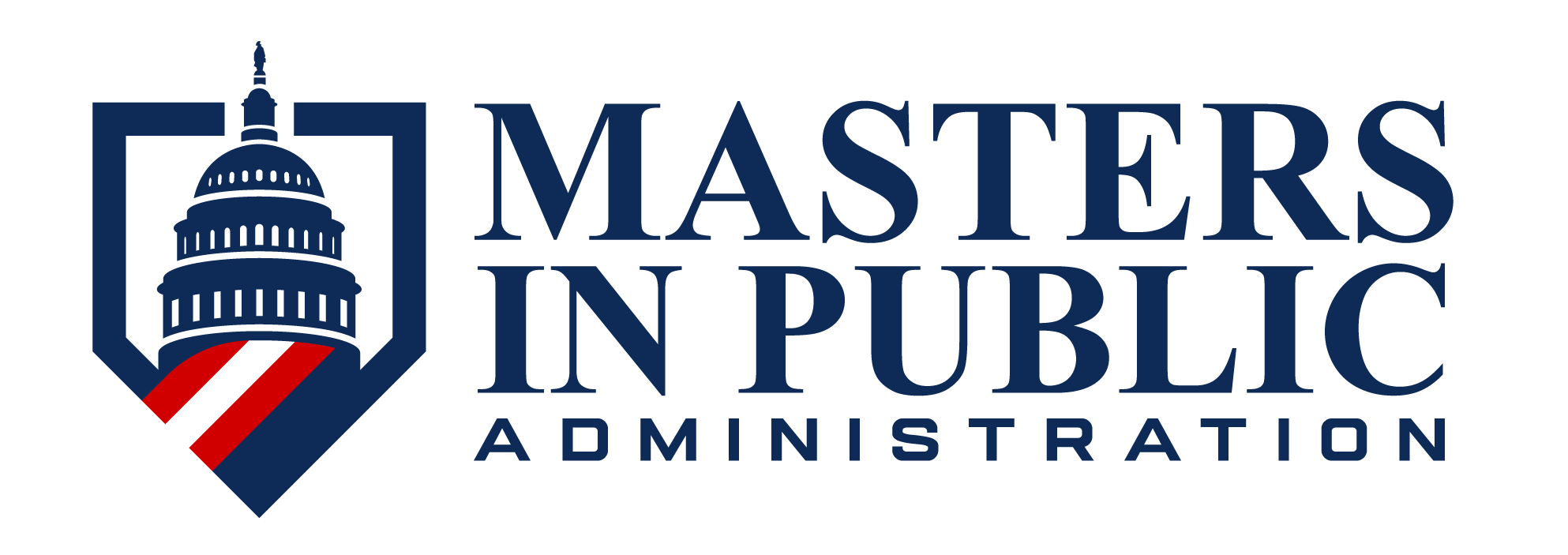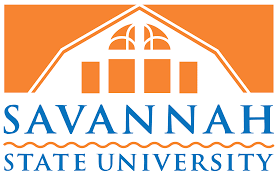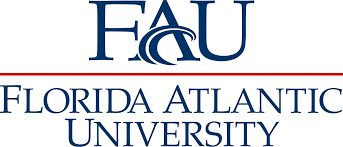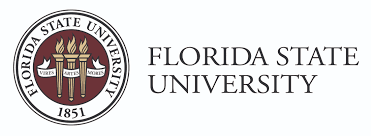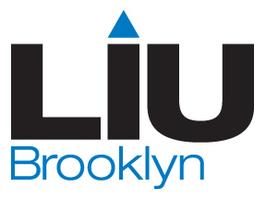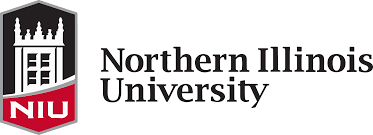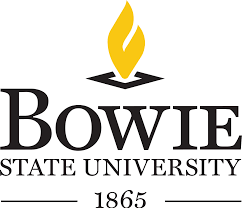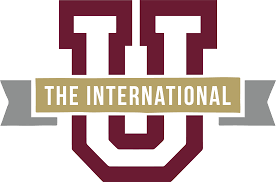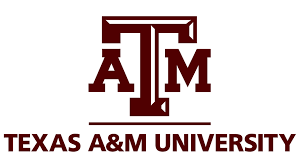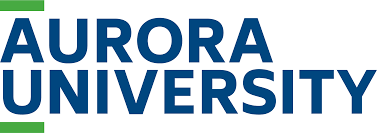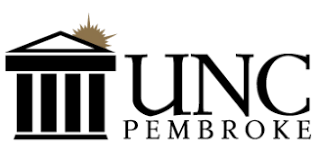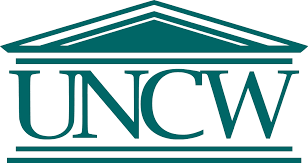Introduction
Tuition affordability is significantly important for prospective Master of Public Administration (MPA) students due to practical reasons. Many individuals pursuing an MPA are driven by a commitment to public service and social impact, often aspiring to work in government agencies or nonprofits where financial resources may be limited. Having affordable tuition ensures that these individuals can access the education needed to contribute effectively to societal well-being without incurring excessive student debt.
Additionally, for many MPA students who are mid-career professionals seeking to enhance their skills or transition into the public sector, affordable tuition is crucial. It enables them to make career advancements without being overly burdened by financial strain, especially considering existing responsibilities such as family and mortgages. In essence, tuition affordability supports the broader goals of promoting diversity, inclusion, and fostering a well-prepared and diverse group of professionals dedicated to public service.
Residential, Non-Residential, and Distance Learning MPA Tuition
The tuition structure for Master of Public Administration (MPA) programs often varies based on the format of the program—residential, non-residential, or distance learning. The distinction between residential (in-state) and non-residential (out-of-state) tuition rates is a pivotal factor influencing the cost of education.
Typically, residential tuition is significantly lower than non-residential tuition at public universities. This pricing discrepancy arises from the public funding model wherein state residents contribute through taxes to support the institution. Consequently, residential students benefit from subsidized tuition as a form of state investment in their education. On the contrary, non-residential students, who have not contributed to the state’s tax base, are required to cover the full cost of their education, leading to higher tuition fees.
The concept of residential status, often associated with on-campus programs, can extend to online or distance learning students, impacting their tuition rates based on their state of residence. While online learners may not physically reside on campus, their residential status, determined by their state of residence, can influence tuition costs in a manner similar to traditional, on-campus students.
Overview of Affordable Online MPA Programs
Affordable Master of Public Administration (MPA) programs, offered both by state universities accredited by the Network of Schools of Public Policy, Affairs, and Administration (NASPAA) and through online platforms, represent a valuable opportunity for individuals seeking advanced education in public administration without incurring substantial financial burdens.
NASPAA-accredited programs, known for maintaining high academic standards, provide an in-person, immersive learning experience within specific states. These programs are tailored to individuals who prefer traditional classroom settings and benefit from the academic rigor associated with NASPAA accreditation.
On the other hand, online MPA programs, offered by various institutions across states, cater to the flexibility needs of working professionals and those who prioritize remote learning. These programs often provide a cost-effective alternative, allowing students to access quality education without the additional expenses associated with relocation. In this exploration of affordable MPA programs, we’ll delve into state-specific NASPAA-accredited options and online programs, considering the financial accessibility that both models bring to prospective students.
ADVERTISEMENT
Walden University
Online Public Policy and Administration Programs
Walden University’s Public Administration programs are taught by a distinguished faculty of scholar-practitioners, many of whom have senior-executive experience in government and public service. Programs include:
Arizona State University
Online Master of Public Administration (MPA)
ASU’s Online Master of Public Administration provides students with a curriculum that covers leadership strategies, ethical decision-making, and effective management across various organizations.
Liberty University
Online Master of Public Administration (MPA)
Liberty University’s Master’s Degree in Public Administration Online is designed to equip students with a thorough background in the theories and practices essential for success in government and nonprofit roles. MPA areas of focus include:
Southern New Hampshire University
Online Public Administration & Political Science Degrees
Stand up and be counted with a degree in public administration/political science from Southern New Hampshire University—and learn how to facilitate change from within the system. Program offerings include:
Cheapest NASPAA-Accredited Programs
State of Georgia
Clark Atlanta University
- Atlanta, GA
Program: Division of Social Sciences
Tuition: $1,068 per semester (residents and non-residents)
Savannah State University
- Savannah, GA
Program: Public Administration Department
Tuition: $2,343 per semester (residents)
Affordable MPA Programs in the State of California
California State University Long Beach
- Long Beach, CA
Program: Public Policy and Administration Department
Tuition: $10,000 total (residents)
San Jose State University
- San Jose, CA
Program: Political Science Department
Tuition: $11,484 total (residents)
University of La Verne
- Ontario, CA
Program: College of Law and Public Policy
Tuition: $785 per credit (residents and non-residents)
Cheapest Masters in Public Administration Programs in the State of Florida
University of Central Florida
- Orlando, FL
Program: Public Administration Department
Tuition: $3,327 per semester (residents)
Florida Atlantic University
- Boca Raton, FL
Program: College of Arts and Letters
Tuition: $3,346 per semester (residents)
Florida State University
- Tallahassee, FL
Program: Askew School of Public Administration
Tuition: $3,632 per semester (residents)
Affordable Publc Administration Programs in the State of New York
SUNY College Brockport
- Brockport, NY
Program: Public Administration Department
Tuition: $5,655 per semester (residents)
Binghamton University
- Binghamton, NY
Program: Public Administration Department
Tuition: $6,892 per semester (residents)
Marist College
- Poughkeepsie, NY
Program: School of Management
Tuition: $920 per credit (residents and non-residents)
LIU Brooklyn
- Brooklyn, NY
Program: Roosevelt School
Tuition: $1,352 per credit (residents and non-residents)
Illinois Affordable MPA Programs
Southern Illinois University
- Carbondale, IL
Program: Business School
Tuition: $321 per credit (residents)
University of Illinois
- Champaign, IL
Program: Department of Public Policy
Tuition: $321 per credit (residents)
Northern Illinois University
- DeKalb, IL
Program: Department of Public Administration
Tuition: $595 per credit (residents and non-residents)
DePaul University
- Chicago, IL
Program: School of Public Service
Tuition: $743 per credit (residents and non-residents)
Affordable MPA Programs in the State of Colorado
University of Colorado
- Denver, CO
Program: School of Public Affairs
Tuition: $595 per credit (residents)
Cheapest Cost Per Credit MPA’s in Massachusetts
Bridgewater State University
- Bridgewater, MA
Program: Public Administration Department
Tuition: $502 per credit (residents and non-residents)
Northeastern University
- Boston, MA
Program: College of Social Sciences
Tuition: $985 per credit (residents and non-residents)
Suffolk University
- Boston, MA
Program: Sawyer Business School
Tuition: $1,322 per credit (residents and non-residents)
Lowest Tuition MPAs in the State of Maryland
Bowie State University
- Bowie, MD
Program: Department of Management
Tuition: $448 per credit (residents)
University of Baltimore
- Baltimore, MD
Program: Public Administration Department
Tuition: $995 per credit (residents)
University of Maryland – College Park
- College Park, MD
Program: The Graduate School
Tuition: $815 per credit (residents)
ADVERTISEMENT
Walden University
Online Public Policy and Administration Programs
Walden University’s Public Administration programs are taught by a distinguished faculty of scholar-practitioners, many of whom have senior-executive experience in government and public service. Programs include:
Arizona State University
Online Master of Public Administration (MPA)
ASU’s Online Master of Public Administration provides students with a curriculum that covers leadership strategies, ethical decision-making, and effective management across various organizations.
Liberty University
Online Master of Public Administration (MPA)
Liberty University’s Master’s Degree in Public Administration Online is designed to equip students with a thorough background in the theories and practices essential for success in government and nonprofit roles. MPA areas of focus include:
Southern New Hampshire University
Online Public Administration & Political Science Degrees
Stand up and be counted with a degree in public administration/political science from Southern New Hampshire University—and learn how to facilitate change from within the system. Program offerings include:
Oregon Affordable MPA/MPP Programs
Portland State University
- Portland, OR
Program: MPA Graduate Program
Tuition: $478 per credit (residents)
University of Oregon
- Eugene, OR
Program: School of Planning, Public Policy, and Management
Tuition: $683 per credit (residents)
Affordable MPA Programs in the State of Ohio
Bowling Green State University
- Bowling Green, OH
Program: Political Science Department
Tuition: $536 per credit (residents)
Cleveland State University
- Cleveland, OH
Program: Levin College of Public Affairs
Tuition: $602 per credit (residents)
Tennessee
Tennessee State University
- Nashville, TN
Program: College of Public Service
Tuition: $579 per credit (residents)
University of Memphis
- Memphis, TN
Program: Public and Nonprofit Administration Department
Tuition: $623 per credit (residents)
North Carolina
East Carolina University
- Greenville, NC
Program: Public Administration Department
Tuition: $264 per credit (residents)
North Carolina Central University
- Durham, NC
Program: Public Administration Department
Tuition: $308 per credit (residents)
State of Virginia
Old Dominion University
- Norfolk, VA
Program: School of Public Service
Tuition: $599 per credit (residents)
George Mason University
- Fairfax, VA
Program: Schar School of Policy and Government
Tuition: $927 per credit (residents)
State of Texas
Texas A&M International
- Laredo, TX
Program: School of Management and Leadership
Tuition: $16,037 total (residents)
Texas A&M University
- College Station, TX
Program: Bush School of Public Policy
Tuition: $27,456 total (non-residents)
Texas A&M University Corpus Christi
- Corpus Christi, TX
Program: Public Administration Department
Tuition: $4,884 per year (residents)
Most Affordable Online MPA Programs
State of Georgia
Columbus State University
- Columbus, GA
Program: Public Administration Program
Tuition: $3,000 per semester (residents and non-residents)
State of California
California Baptist University
- Riverside, CA
Program: Public Administration Department
Tuition: $650 per credit (residents and non-residents)
Golden State University
- San Francisco, CA
Program: Executive Masters in Administration
Tuition: $825 per credit (residents and non-residents)
National University
- San Diego, CA
Program: Public Administration Department
Tuition: $727 per credit (residents and non-residents)
State of New York
SUNY Buffalo State
- Buffalo, NY
Program: School of Political Science
Tuition: $6,785 per semester (residents and non-residents)
Hilbert College
- Hamburg, NY
Program: School of Public Administration
Tuition: $700 per credit (residents and non-residents)
State of Illinois
Aurora University
- Aurora, IL
Program: Public Administration Department
Tuition: $580 per credit (residents and non-residents)
State of Colorado (including Online MPA Programs)
University of Colorado
- Denver, CO
Program: School of Public Affairs
Tuition: $714 per credit (residents and non-residents)
Colorado State University
- Fort Collins, CO
Program: College of Liberal Arts
Tuition: $998 per credit (residents and non-residents)
Adams State University
- Alamosa, CO
Program: Public Administration Department
Tuition: $462 per credit (residents and non-residents)
Colorado Christian University
- Lakewood, CO
Program: Public Administration Department
Tuition: $543 per credit (residents and non-residents)
Affordable Programs in the State of Michigan
Central Michigan University
- Mt Pleasant, MI
Program: Public Administration Program
Tuition: $758 per credit (residents and non-residents)
Western Michigan University
- Kalamazoo, MI
Program: School of Public Affairs and Administration
Tuition: $764 per credit (residents and non-residents)
Grand Valley State
- Grand Rapids, MI
Program: School of Community Leadership
Tuition: $644 per credit (residents)
Northern Michigan University
- Marquette, MI
Program: Political Science and Administration
Tuition: $667 per credit (residents and non-residents)
Saginaw Valley State University
- University Center, MI
Program: Public Administration Department
Tuition: $722 per credit (residents and non-residents)
Oakland University
- Rochester, MI
Program: Political Science Department
Tuition: $872 per credit (residents)
State of Massachusetts
Anna Maria College
- Paxton, MA
Program: School of Public Administration
Tuition: $719 per credit (residents and non-residents)
Westfield State University
- Westfield, MA
Program: Public Administration Department
Tuition: $398 per credit (residents and non-residents)
State of Maryland
Washington Adventist University
- Takoma Park, MD
Program: Arts in Public Administration
Tuition: $560 per credit (residents and non-residents)
McDaniel College
- Westminster, MD
Program: Graduate and Professional Studies Division
Tuition: $643 per credit (residents and non-residents)
State of Ohio
Toledo University
- Toledo, OH
Program: Public Administration Department
Tuition: $695 per credit (residents and non-residents)
State of Tennessee
East Tennessee State University
- Johnson City, TN
Program: Public Administration Department
Tuition: $579 per credit (residents and non-residents)
Cumberland University
- Lebanon, TN
Program: Public Service Management
Tuition: $625 per credit (residents and non-residents)
State of North Carolina
University of North Carolina (Pembroke)
- Pembroke, NC
Program: Political Science and Public Administration Department
Tuition: $238 per credit (residents and non-residents)
University of North Carolina (Wilmington)
- Wilmington, NC
Program: Executive MPA Program
Tuition: $276 per credit (residents and non-residents)
State of Utah
Utah Valley University
- Orem, UT
Program: Public Administration Department
Tuition: $1,446 per course (residents and non-residents)
State of Virginia
Regent University
- Virginia Beach, VA
Program: Public Administration Department
Tuition: $695 per credit (residents and non-residents)
University of Management & Technology
- Arlington, VA
Program: Public Administration Department
Tuition: $390 per credit (residents and non-residents)
State of Texas
Lamar University
- Beaumont, TX
Program: Public Administration Department
Tuition: $12,315 total (residents)
Sam Houston State University
- Huntsville, TX
Program: Public Administration Department
Tuition: $320 per credit (residents and non-residents)
University of Texas of the Permian Basin
- Odessa, TX
Program: Public Administration Department
Tuition: $14,075 total (residents and non-residents)
Scholarships and Payment Planning
Scholarships and payment planning play crucial roles in alleviating the financial burden for individuals pursuing Master of Public Administration (MPA) graduate programs. Various scholarships and financial aid opportunities are available for MPA students, ranging from institution-specific awards to those provided by external organizations. Students are encouraged to explore scholarship databases, such as Fastweb, Peterson’s, and the NASPAA Fellowship Database, to identify relevant opportunities. Additionally, many universities offer merit-based scholarships, need-based aid, and diversity scholarships to support students from diverse backgrounds.
Overall, a proactive approach to researching scholarships, considering graduate assistantships, and developing a sound payment plan can significantly contribute to making MPA graduate programs financially feasible. Prospective students are encouraged to leverage university resources, connect with financial aid offices, and explore external scholarship opportunities to maximize their financial support throughout their academic journey.
Graduate Assistantships
Graduate assistantships serve as another valuable resource for financing MPA programs. These positions often involve working on campus, supporting faculty, assisting with research projects, or contributing to administrative tasks. In return, students may receive tuition waivers or stipends, helping offset educational costs. Prospective MPA students should explore assistantship opportunities within their chosen program or department.
Graduate assistants (GAs) may be involved in a variety of roles, including assisting faculty with research projects, supporting administrative tasks within departments, or contributing to the development and execution of academic programs. The nature of the assistantship can vary, allowing students to align their responsibilities with their academic and career interests. At DePaul University, for example, the Graduate Assistantship program offers students research opportunities for 20 hours of work per week. In exchange, tuition is fully compensated for full-time students.
Graduate assistantships offer valuable professional development opportunities. Students gain practical experience in their field, develop transferable skills, and build a network within the academic or professional community. The experience gained during an assistantship can enhance a student’s resume and make them more competitive in the job market upon graduation.
Payment Plans and Student Loans
Payment planning is essential for managing the costs of graduate education. Many universities offer installment plans, allowing students to break down tuition payments into manageable monthly installments. Additionally, financial aid offices can provide guidance on federal student loans and repayment options. Researching and applying for external funding sources, such as government grants or employer-sponsored tuition assistance programs, can further enhance financial support.
The U.S. Department of Education offers federal student loan programs for graduate students, such as the Direct Unsubsidized Loan and the Grad PLUS Loan. These loans typically have favorable interest rates and flexible repayment options. Graduates working in public service or nonprofit organizations may be eligible for loan forgiveness programs, such as the Public Service Loan Forgiveness (PSLF) program. Understanding the criteria and requirements for loan forgiveness is crucial for long-term financial planning.
Employer Sponsorship and Tuition Reimbursement
Employer sponsorship involves the employer directly covering the costs of an employee’s education, including tuition, fees, and sometimes additional expenses. MPA students receiving employer sponsorship not only gain financial support but also often maintain their existing employment status, which can include benefits such as health insurance and job security.
Prospective MPA students should approach negotiations for employer support strategically. This may involve highlighting how the skills acquired during the MPA program align with the organization’s goals and how the investment in education will contribute to the employee’s enhanced performance. Employees can articulate the return on investment (ROI) their education will bring to the organization. This may include improved leadership skills, enhanced problem-solving abilities, and the potential for contributing to organizational growth and efficiency.
MPA students should thoroughly understand their employer’s policies related to sponsorship or reimbursement. This includes understanding any contractual commitments, conditions for eligibility, and the process for submitting reimbursement requests.
